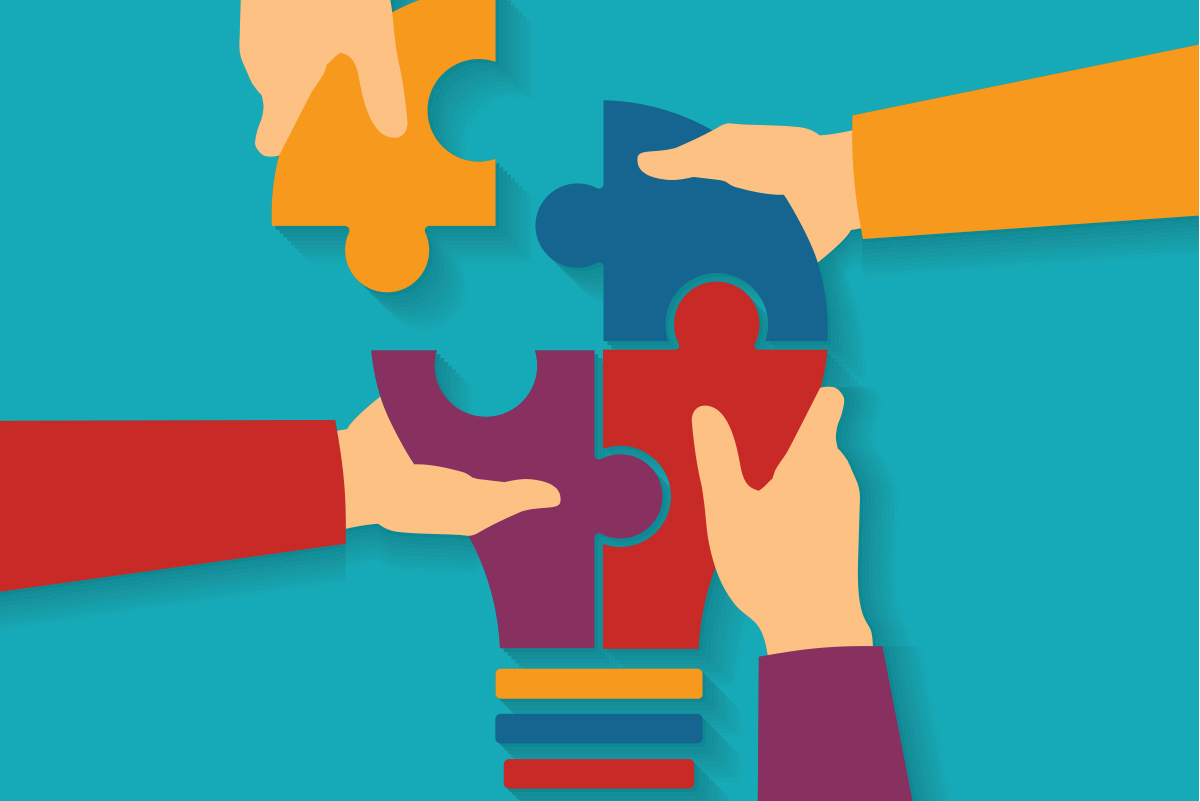
13 Resources for Libraries That Are Serious About Promoting Health Literacy
Health literacy is a hot topic in public libraries right now, and it’s no wonder why.
Pew Research reports that 80% of Internet users — that’s about 93 million Americans — have searched for health-related information online. Despite health being a topic that affects literally every community member, most materials on this topic are inaccessible because they’re written at a reading level that’s above the national average.
Libraries are embracing this as an opportunity to offer a unique value to their communities. To help community members gain the skills they need to find, evaluate and use health-related information, nearly one quarter of libraries offer classes about accessing online health and wellness information, and many libraries offer diverse programming on physical and mental health topics for all ages. Others are extending their reach outside their walls, forging partnerships with hospitals, parks and recreation groups, senior centers and more to offer non-traditional health programming.
Your library’s opportunities to improve community health are limited only by the creativity of staff and the quality of the resources available! We’ve compiled a list of reputable resources that can help you fill the health literacy needs of your community. From accurate and readable information on medical and health issues to models for health and wellness programming, these resources can help your library improve your community’s health and health literacy.
1. National Network of Libraries of Medicine
As part of their mission to “improve the public’s access to information to enable them to make informed decisions about their health,” the National Network of Libraries of Medicine (NNLM) has launched a national initiative in public libraries to “equip library staff with effective skills and high-quality resources.” Join the network at no cost in order to receive access to a number of health literacy resources, including educational materials, training opportunities, funding opportunities and e-learning and in-person classes that are geared toward librarians.
2. RUSA’s Health and Medical Reference Guidelines
If you’re just getting started with your health literacy programming, start here! The Reference and User Services Association (RUSA), a division of the American Library Association (ALA), guides libraries of all sizes serving all communities in answering health and medical reference questions. To get started (or as a helpful refresher), information services staff can brush up on how to professionally and ethically answer health-related reference questions.
3. Health Happens in Libraries
Webjunction and Zero Divide’s “Health Happens in Libraries” program recognizes the role public libraries play as contributors to community health, and they hope to support public library staff with resources to “respond confidently to patron requests for health information.” Access community health and health literacy library guides, profiles of libraries undertaking health literacy initiatives and live and recorded webinars to get inspired about how to take a more active role in your community’s health and health literacy.
4. MedlinePlus
MedlinePlus is a free resource created by the National Library of Medicine (NLM). It offers content on diseases, conditions and wellness issues in easy-to-understand terms in 60 different languages. The resource contains no advertising, is updated daily and includes information on over 1,000 diseases and conditions. Add this definitive and robust reference resource to your health literacy toolkit!
5. National Center for Complementary and Integrative Health
The National Center for Complementary and Integrative Health (NCCIH) provides information about complementary, alternative and integrative health products and practices. It features articles on a variety of health topics, information on herbs and supplements and links to health and research resources at other federal agencies. Use this reference resource to provide information to patrons looking for information on alternative health care and medical practice.
6. National Institute on Aging
The National Institute on Aging (NIA), one of the 27 Institutes and Centers of National Institutes of Health, leads a broad scientific effort to extend the healthy, active years of life. This organization is the primary federal agency that supports and conducts Alzheimer’s disease research. If you work with aging populations or caregivers, utilize the NIA’s information on physical and mental health topics related to aging, including Alzheimer’s and related dementias, cognitive health, nutrition and diet, and more.
7. National Institute of Mental Health
With one in six U.S. adults living with mental illness, supporting health literacy in your community should include a focus on mental health as well as physical health. The National Institute of Mental Health (NIMH), the federal agency for research on mental health disorders, can help. It provides information about the causes, signs and symptoms, risk factors, treatment and therapies available for mental illnesses. Check out their free, easy-to-read fact sheets and brochures, which are a great reference starting point for more than a dozen disorders. Their website also provides links to help users find clinical trials and get help for themselves or others.
8. National Library of Medicine
The National Library of Medicine (NLM) provides reliable resources on consumer health, such as websites, access to interactive health tutorials and online web-searching tools. Topics covered include general health information, drugs and supplements, genetics, environmental health and toxicology. Take a look at their list of drug information portals and databases, all of which could be helpful additions to your arsenal of health literacy reference resources.
Health and wellness is one of the many topics featured on Programming Librarian, a site run by the ALA Public Programs Office. Browse news content and blog articles, sign up for learning opportunities and see how other libraries are supporting health and wellness in their communities. Content covers libraries of all types and audiences of all ages.
The online companion to the Public Library Association’s bi-monthly print publication, Public Libraries Online features a number of articles and posts on health programming, health literacy and health information at the library. Read up on what others in the industry are saying about how to best support health within your community.
11. Public Library Association’s Health Literacy Initiative
In partnership with the NNLM, the Public Library Association is working to promote healthy communities through a health information initiative. The effort hopes to increase awareness of consumer health information services and resources and enable library staff to have confident, sustained services which address consumer health information needs. Take part in one of the many in-person and online continuing education opportunities designed to help public libraries better meet the health and health literacy needs of their communities.
12. EthnoMed
A joint program of the University of Washington Health Sciences Libraries and Harborview Medical Center’s Interpreter Services Department/Community House Calls (ISD/CHC) Program, EthnoMed’s objective is “to make information about culture, language, health, illness and community resources directly accessible to health-care providers who see patients from different ethnic groups.”
While the information is specific to groups in the Seattle area, much of the content will be of interest and applicable to other areas. If you serve populations whose first language is Amharic, Chinese, Hmong, Karen, Khmer, Oromo, Somali, Spanish, Tigrinya or Vietnamese, you will find EthnoMed’s educational health-care materials written in these languages to be a valuable resource.
Impacting community health requires more than just offering online resources to patrons — it requires tools and active programming focused on keeping their minds sharp as well! While there are many options out there when it comes to brain-training programs, Posit Science’s BrainHQ™ is unique in that its outcomes are scientifically proven.
A study recently published in Neuropsychological Review found that only BrainHQ was backed by multiple high-quality studies, while other commercially available brain exercises and games targeting older adults lacked any scientific backing. To take your health literacy efforts to the next level, broaden your programming to include information on brain health and resources like BrainHQ, which your patrons can access through any device with the power of a library card.
On-Demand Webinar
Play a Crucial Role in Improving Your Patrons’ Cognitive Health
May 17, 2018

Related Resources
You Responded, We Listened: Wandoo Reader Survey Results and Plans for 2019
Discover what we learned from our Wandoo Reader customer survey and how we are using the results to enhance current features and develop new functionality for 2019.
read moreExplore the Benefits of Offering Online and In-Person Learning at Your Library
Are you interested in offering online learning opportunities while still continuing to hold in-person programs at your library? Explore the benefits of both learning formats and get ideas on ways they can complement each other.
read more4 Signs that Your Community Is Ready for a Library Mobile App
Are you thinking about investing in a library mobile app, but you’re not sure if your patrons would use it? Use this checklist to help you determine if your community is truly ready for a library mobile app.
read more


